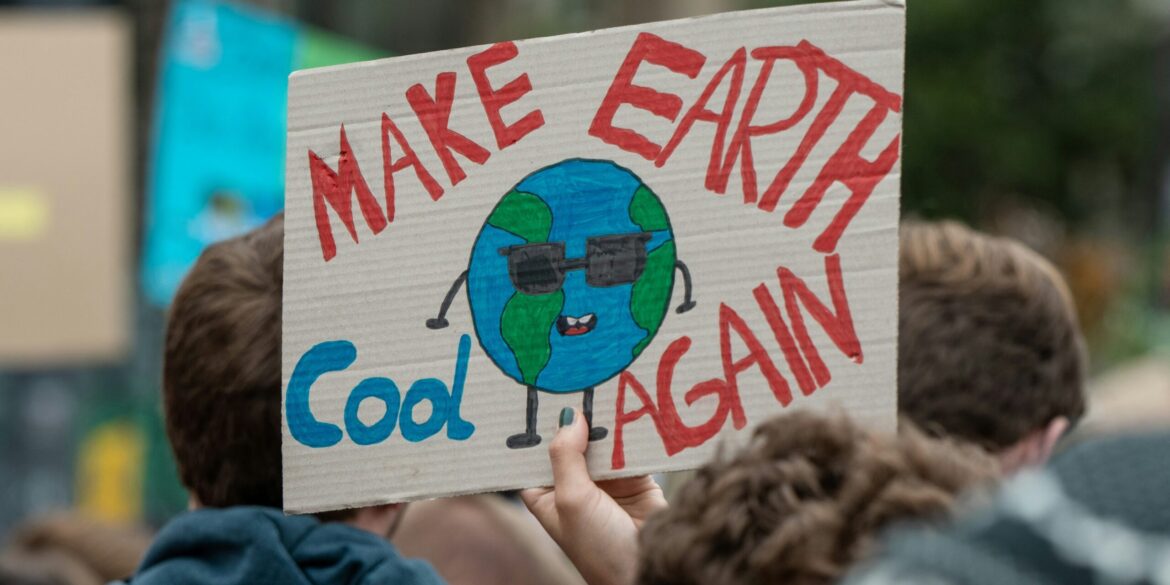The Biden administration has introduced an ambitious climate action plan with the goal of reducing U.S. carbon emissions by 50% by 2035. This initiative is part of President Joe Biden’s broader strategy to reach net-zero emissions by 2050, fulfilling a key promise made during his campaign. The new plan is a critical step in the administration’s commitment to addressing climate change, which continues to be a pressing global challenge.
One of the central components of the plan is the significant expansion of clean energy infrastructure. This includes increased investments in renewable sources such as solar and wind energy, which are seen as crucial to reducing the nation’s reliance on fossil fuels. The government is also placing a strong emphasis on the adoption of electric vehicles (EVs), with plans to incentivize both consumers and manufacturers to accelerate the transition to electric mobility. The plan proposes tax credits, rebates, and grants to make EVs more affordable and accessible for Americans, which is expected to boost demand and reduce the carbon footprint of the transportation sector.
In addition to these initiatives, the federal government is working to incentivize states and businesses to ramp up their efforts in reducing greenhouse gas emissions. The climate plan proposes a range of financial incentives, including tax credits for companies that invest in clean energy technologies and grants to state and local governments that implement sustainable policies. The aim is to create a comprehensive strategy that encourages collaboration between the federal government, states, and private industries, ensuring that all sectors of the economy contribute to the nation’s climate goals.
Environmental advocates have hailed the new climate action plan as the most comprehensive and forward-thinking approach to addressing climate change the U.S. has seen to date. They argue that the plan’s focus on renewable energy and electric vehicles is a vital step in reducing the nation’s carbon footprint, as well as promoting energy independence. “This plan puts the U.S. on a clear path to reducing greenhouse gas emissions and combating the effects of climate change,” said Greta Thunberg, climate activist. “It’s a crucial move toward a sustainable future, both for the U.S. and for the planet.”
However, the plan has faced criticism and opposition from certain sectors of the economy, particularly the fossil fuel industry. Critics argue that the aggressive push toward clean energy could result in job losses in traditional energy sectors, such as coal, oil, and natural gas, and may place undue financial burdens on businesses and consumers. Furthermore, there are concerns about the feasibility of meeting the plan’s ambitious emissions reduction targets without significant investment in new technologies and infrastructure. “This plan doesn’t take into account the economic realities of transitioning away from fossil fuels,” said Mark Miller, a spokesperson for a national energy association. “It’s an unrealistic approach that threatens jobs and economic stability in communities dependent on fossil fuel industries.”
Another significant aspect of the Biden administration’s climate action plan is its focus on climate justice, ensuring that vulnerable communities disproportionately affected by environmental degradation are supported. These communities, often low-income and communities of color, are more likely to experience the adverse effects of pollution, rising temperatures, and extreme weather events. The plan outlines several initiatives aimed at improving climate resilience in these areas, including funding for renewable energy projects and infrastructure upgrades. Additionally, there are strategies to promote sustainable economic development in marginalized areas, helping to create jobs in green industries and reduce the environmental burden on these communities.
The Biden administration has stressed the importance of cooperation at both the federal and state levels to ensure the success of the climate action plan. While the federal government can provide incentives and funding, much of the responsibility for implementing these changes will fall to state governments and local businesses. The challenge will be aligning the interests of various stakeholders, including those in traditionally fossil fuel-dependent regions, with the broader goals of reducing emissions and advancing clean energy solutions.
Despite the challenges and opposition, the Biden administration’s climate action plan is a bold step forward in the fight against climate change. By focusing on clean energy, electric vehicles, and climate justice, the plan seeks to address both the environmental and social aspects of climate policy. If successfully implemented, it could position the U.S. as a global leader in the transition to a sustainable, low-carbon economy.

